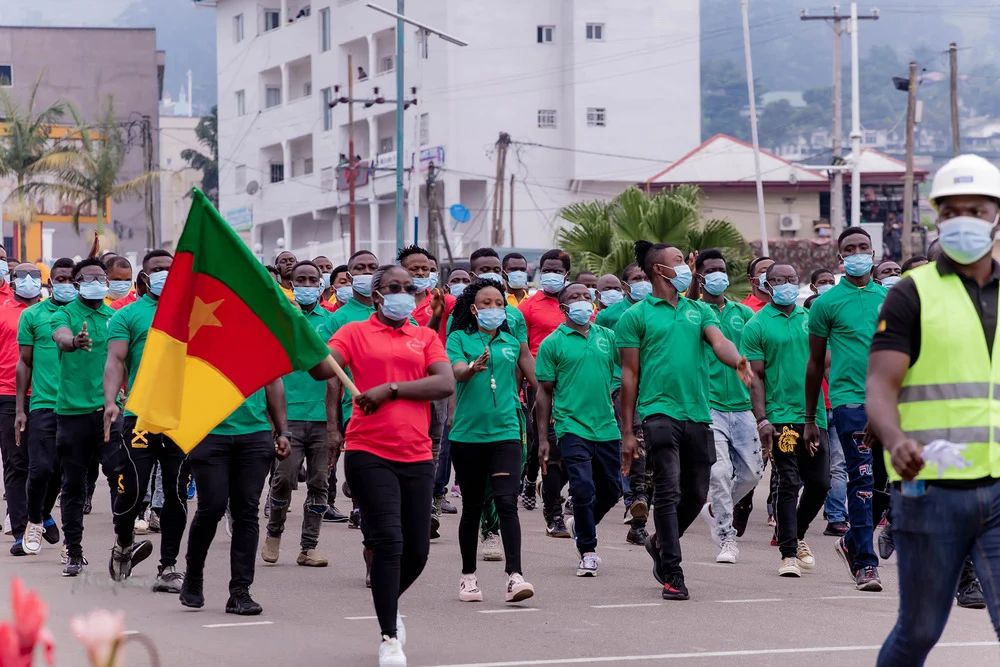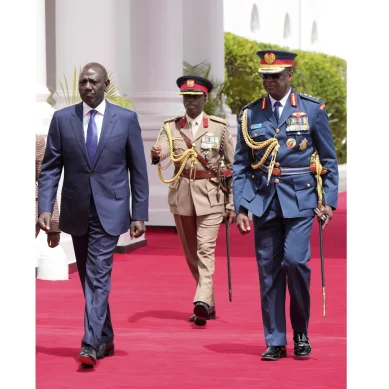
John Ngah* is a keen amateur footballer, but at the end of each game, when his team mates head off to their families, he heads back to the Buea Disarmament, Demobilisation and Reintegration Centre (DDRC) – his home for the past two years.
The 22-year-old is a former combatant in a separatist movement that since 2016 has been fighting for the independence of the country’s two English-speaking Northwest and Southwest regions, otherwise known as Ambazonia.
He joined the Amba Boys in 2018, frustrated by what he regarded as the “marginalisation” of anglophones in the majority French-speaking country – especially when it came to finding public sector jobs – and the “intimidation” he said he witnessed of young English-speaking men by the security forces.
Two years on, disillusioned by his experience in the bush, and by what he saw as a secessionist struggle that had lost its direction, Ngah made his way to Buea, the main city in the Southwest region, and gave himself up – swayed in part by government promises of job training and reintegration.
“The movement has changed,” he says. “It’s now about kidnapping, stealing and demanding ransoms [from civilians abducted on the pretext of supposed crimes].”
Both the government security forces and the separatist rebels are accused of killing civilians, sexual violence and torture – violence that has forced more than 640,000 people from their homes. A splintering of the secessionist movement, with rival leaders either abroad or in prison, means local commanders enjoy considerable autonomy and impunity.
In November 2018, President Paul Biya issued a decree creating the National Committee for Disarmament, Demobilisation and Reintegration (NCDDR) for former anglophone separatist fighters, and for ex-Boko Haram fighters in the Far North region.
DDRCs were set up not long afterwards in Buea and in Bamenda, the main city in the Northwest region – part of a new government strategy to build what was touted as “peace and unity.” However, residents of the centres, who must stay there indefinitely, quickly grew frustrated, citing poor living conditions and a lack of training opportunities.
And there has been a more fundamental criticism: The demobilisation strategy has had little impact on slowing the conflict – a key yardstick. “The Bamenda and Buea centres have less than 500 residents combined,” said Arrey Elvis Ntui, a senior analyst with the International Crisis Group. “Meanwhile, deadly attacks against the army have intensified.”
Initially, anglophone communities “believed it could help as part of a package of [peace] measures in the pipeline”, Ntui said. “But fewer community leaders are referring their people there now.” They are concerned about the duration of the programme, “the intensifying conflict”, and allegations that some supposedly repentant fighters have subsequently become involved in banditry, he added.
There was no comment when we reached out to the Cameroonian government with questions about the centres and the demobilisation programme.
Ngah’s decision to quit was the relatively easy part. He then had to get to the DDRC from his separatist camp in the village of Kwakwa, about 90 kilometres north of Buea. For that, he needed to find intermediaries to link him to the authorities, and ease his journey.
He reached out to a pastor in the Kwakwa area who helped him escape to a church. From there, the government needed to be alerted about his intentions, so he was taken to meet a senior regional administrative official. The next step was a visit to the nearby gendarmerie, where Ngah’s statement was taken, and a short investigation was held to determine if he was genuine about quitting. Only then was he sent to the centre in Buea.
Like other ex-combatants, Ngah had heard the government’s promises of a fresh start and hoped to learn a trade at the Buea centre. But the reality has been frustrating delays, he said. Although the men in the programme are free to move around the city – and some have found odd jobs – the centres are not yet properly equipped to provide the long-term skills training that had lured them in from the bush.
“I came here because the government promised us a better life,” said Ngah. “I was hoping to learn a trade and get some support to start up a business of my own.” Two years later, he’s still waiting. “And even more disturbing,” he added, “I don’t know when I will leave.”
- The New Humanitarian report











